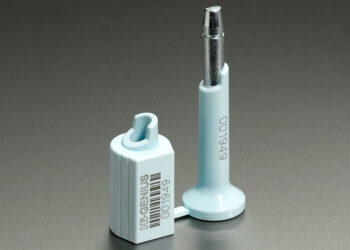ISO 17712 is an international standard that specifies requirements for mechanical seals used on shipping containers. These seals are crucial for ensuring the security and integrity of containerized cargo during transportation. The standard is designed to prevent tampering, theft, and unauthorized access to goods in transit. While the demand for ISO 17712 testing services is global, accessing such services in North Korea presents unique challenges and considerations due to the country’s political and economic isolation. In this article, we will explore the complexities of obtaining ISO 17712 testing services in North Korea.
Political and Economic Isolation
North Korea is one of the most isolated countries in the world due to its reclusive political regime and heavily sanctioned economy. The country’s limited interaction with the international community creates significant hurdles for accessing specialized services, including ISO 17712 testing. International sanctions imposed on North Korea further restrict its ability to engage in cross-border trade and collaboration, making it difficult to access modern testing facilities and equipment.
Limited Infrastructure and Technical Expertise
Another significant challenge in obtaining ISO 17712 testing services in North Korea is the country’s limited infrastructure and technical expertise. The development of advanced testing facilities requires substantial investment, access to modern technology, and a pool of skilled professionals. North Korea’s focus on other priorities, such as its military and nuclear programs, has led to the neglect of sectors like trade and logistics, resulting in a shortage of resources and expertise in container security and testing.
International Trade Restrictions
The imposition of international sanctions on North Korea complicates matters further. Many countries and businesses are cautious about engaging in trade with North Korea due to concerns about the country’s nuclear program, human rights violations, and unpredictable political climate. This reluctance to conduct business with North Korea extends to the provision of specialized services like ISO 17712 testing.
Alternatives and Workarounds
Given the challenges of obtaining ISO 17712 testing services in North Korea, several alternatives and workarounds might be considered:
- Regional Collaboration: North Korea’s neighboring countries, such as China and South Korea, might play a crucial role in facilitating trade and technical collaboration. Regional cooperation could enable the establishment of testing facilities near North Korea’s borders, allowing easier access to such services.
- Mobile Testing Labs: Utilizing mobile testing laboratories that can be transported to North Korea could be a viable solution. These labs could be equipped with the necessary testing equipment and operated by experts from neighboring countries.
- International Aid and NGO Support: International organizations and non-governmental organizations (NGOs) dedicated to promoting trade and security could contribute by providing technical assistance, expertise, and resources for establishing testing facilities in North Korea.
- Remote Testing Services: Remote testing services, where ISO 17712 tests are conducted in accredited facilities outside North Korea, might be considered. This approach, though challenging in terms of logistics and transportation, could offer a viable solution.
Conclusion
Obtaining ISO 17712 testing services in North Korea is undoubtedly challenging due to its political and economic isolation, limited infrastructure, and international trade restrictions. However, with strategic regional collaboration, international aid, and innovative solutions, it might be possible to establish container security testing facilities in the country. Enhancing container security in North Korea is essential not only for the safety of goods in transit but also for fostering regional and global trade relationships. As the geopolitical landscape evolves, opportunities for technical cooperation and trade may arise, potentially easing the path towards improved container security in North Korea. Until then, creative and collaborative efforts will be necessary to overcome the hurdles and ensure the smooth flow of goods through this isolated nation.











